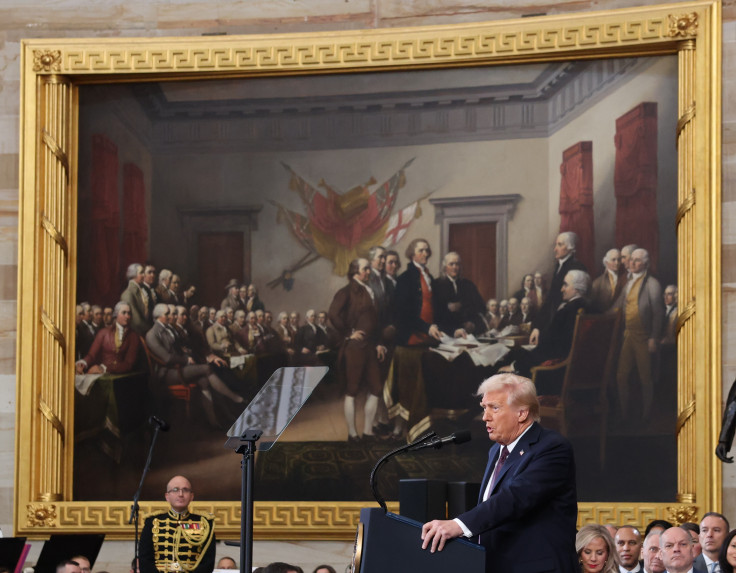
President Donald Trump again hinted over the weekend at the possibility of seeking a third term even if the move is explicitly prohibited in the constitution. At least one member of Congress supports that decision, introducing a bill to allow presidents to run for three terms. But regardless of the president's desires, could this become a reality?
Trump said Sunday on Air Force One that he was "not joking" about trying to serve a third term, the clearest indication he is considering ways to breach a constitutional barrier against continuing to lead the country once his term ends in 2029.
"There are methods which you could do it," Trump said in a telephone interview with NBC News from Mar-a-Lago, his private club.
Trump later told reporters on Air Force One from Florida to Washington that "I have had more people ask me to have a third term, which in a way is a fourth term because the other election, the 2020 election was totally rigged," he said, in the latest indication that he has yet to accept his loss to Joe Biden from over four years ago.
The president then added: "I don't want to talk about a third term now because no matter how you look at it, we've got a long time to go."
It remains unclear where the larger bloc of the Republican Party stands on this issue. But at least a section of the Make America Great Again (MAGA) movement supports the idea of having Trump remain in office well after his second term is over.
Three days after the president was inaugurated on Jan. 20, Rep. Andy Ogles of Tennessee filed legislation to try to make Trump eligible for a third term.
''No person shall be elected to the office of the President more than three times, nor be elected to any additional term after being elected to two consecutive terms, and no person who has held the office of President, or acted as President, for more than two years of a term to which some other person was elected President shall be elected to the office of the President more than twice," the bill read.
It is highly unlikely that Trump would be allowed to seek a third term. The 22nd Amendment, added to the Constitution in 1951 after President Franklin D. Roosevelt was elected four times in a row, saying "no person shall be elected to the office of the President more than twice." changing that amendment would require a two-thirds vote of Congress and three-fourths vote of the states.
Interestingly, Trump and his allies have also hinted at having "many ways" in which Trump could take office in 2028. NBC's Kristen Welker suggested that having Vice President JD Vance at the top of the ticket in 2028, only to pass the office on to Trump after winning could be an option. Trump acknowledged the interviewer, saying "that's one" way it could happen.
Derek T. Muller, a law professor at the University of Notre Dame and a scholar in election law, said there has been a dissenting view about the provision of the 22nd Amendment, which focuses on being "elected" president without addressing the idea of ascending to the office. However, he said, such a route would be complicated by the 12th Amendment.
He pointed out that the 12th Amendment states that "no person constitutionally ineligible to the office of the president shall be eligible to that of vice-president of the United States."
Regardless of its constitutionality, the White House has amplified Trump's comments likening himself to royalty, posting a picture of a fake magazine cover depicting the president with a crown after the administration shot down congestion pricing in New York City.
© 2025 Latin Times. All rights reserved. Do not reproduce without permission.








